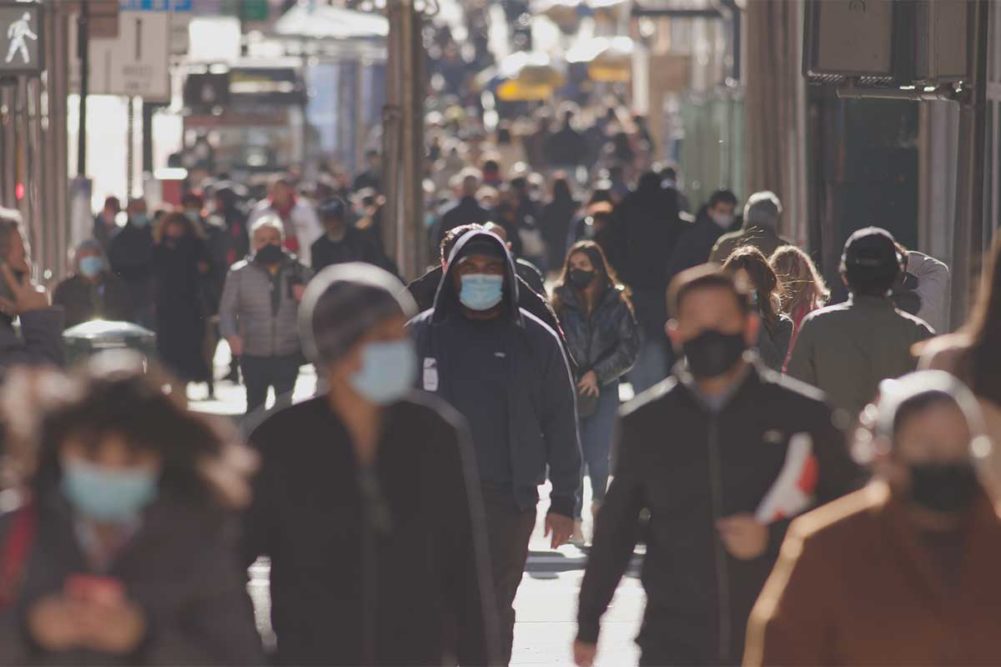Keeping workers safe is of paramount importance to bakeries, especially in times of crisis, and companies did that in many ways during the coronavirus (COVID-19) pandemic.
“We would have these one-on-one conversations with our members, and their first and foremost concern was always trying to keep their employees safe, and that when they went home at night, they felt like they could go and be with their families and still be safe,” said Jennifer Colfelt, vice president, operations and membership for the American Bakers Association (ABA)..
Tippin’s Gourmet Pies in Kansas City, Kan., instituted staggered shifts at its facility, which opened shortly before the pandemic. This was part of the company’s plan, but it was implemented sooner than expected to accommodate social distancing and to avoid a crowded breakroom. The company also took care of workers by handing out gift cards from grocery stores owned by the parent company to thank team members for their hard work and providing masks for use outside the facility, once supply was adequate.
“Our owner many times says we’re not in the grocery business, we’re not in the pie business, we’re in the people business,” said Jim Antrup, vice president of sales and marketing at Tippin’s. “Yes, we create pies. Yes, we sell groceries. But we do that all to take care of our people and take care of our customers.”
Of course, bakery workers have been given personal protective gear, including masks for protection while working, and companies instituted temperature checks to help avoid virus spread. Many also installed plexiglass shields and other measures to promote social distancing.
Pan Pepin in Puerto Rico has dealt with not only the pandemic but also the devastation in the community caused by Hurricane Maria.
“Maria in 2017 reminded us that even though we have a solid infrastructure with an electric generator, water well and buildings up to codes, there is an element of our people who need assistance, and we need to ensure their well-being at their homes,” said Angel Vazquez, Pan Pepin president. “So we have created an internal program to support them.”
Many bakeries have extended help to their communities at large as well, assisting food banks and other programs as the suffering spread during the pandemic. Tulsa, Okla.-based Bama Companies stepped up efforts to feed the hungry by helping to deliver 6,000 to 12,000 meals a day, and H&S Bakeries, Baltimore, donated bread to food pantries, according to ABA’s Bake to the Future podcast.
[Related reading: Surviving a crisis takes planning and agility]
Baker’s Quality had a rough time at the beginning of the pandemic. The company felt as though it was well-positioned because it sold to a variety of venues like schools, restaurants, movie theaters and hospitals. But all of its customers were in foodservice, which meant business plummeted.
“We had actually sat down and done a couple of sessions of crisis planning a year prior to when the pandemic hit,” said Anne Cookson, vice president of sales and marketing and co-owner of Baker’s Quality Pizza Crusts, Milwaukee. “One of the things we talked about was a pandemic and what would we do if all of our employees got sick and we couldn’t operate. We never even considered that everything would close, all of our customers would close, and we wouldn’t need those employees.”
But the company found ways to get its product out by going into retail and direct-to-consumer. And now its foodservice business is back. The experience has drastically changed the company’s response to things, Mrs. Cookson said.
“I think we are a little bit more creative if we were to lose a distribution channel, how we are planning ahead for that,” she said, adding that Baker’s Quality has been proactive in dealing with the supply chain shortages. The company has secondary suppliers and has worked out some pricing contracts that have benefited the company recently.
And they’ve stepped up hiring efforts, with the company raising wages around 30% this year, Mrs. Cookson said.
The pandemic was scary at first, but they learned lessons about inventory and the need for diversification, among others. And weathering the storm gave company leaders confidence that they can do it again.
“I would like to say, ‘Oh, we’re doing so much more planning.’ But actually we’re really not,” Mrs. Cookson said. “And I think it kind of taught us that you need to be able to take it one day at a time.”
Companies must create a crisis management document as a guide, and they should revisit it each year, Mr. Vazquez said. If elements of the plan did not work well during a crisis, develop a better contingency plan for the next event, said Peg Ray, senior manager, product development and innovation, AIB International.
AIB helps bakeries assess their risks, which tells them which crises they should plan for, Ms. Ray said.
Establishing a baseline of what a company’s response will be in a crisis is key, including having a communications plan, knowing who has the decision-making power and tailoring it to the current crisis, Ms. Colfelt said.
“Whether it’s a pandemic, an ingredient shortage, or if something happens in the facility or a cyberattack, you need to understand internally what your chain of command is and who needs to know what and who needs to be active in what ways because you don’t want to be figuring that out in the moment,” she said.
And when that moment comes, follow your plan but be open to adjustment as needed.
“Most importantly, be flexible because crises can come from any direction,” Mr. Vazquez said.
This article is an excerpt from the August 2021 issue of Baking & Snack. To read the entire feature on Crisis Management, click here.






